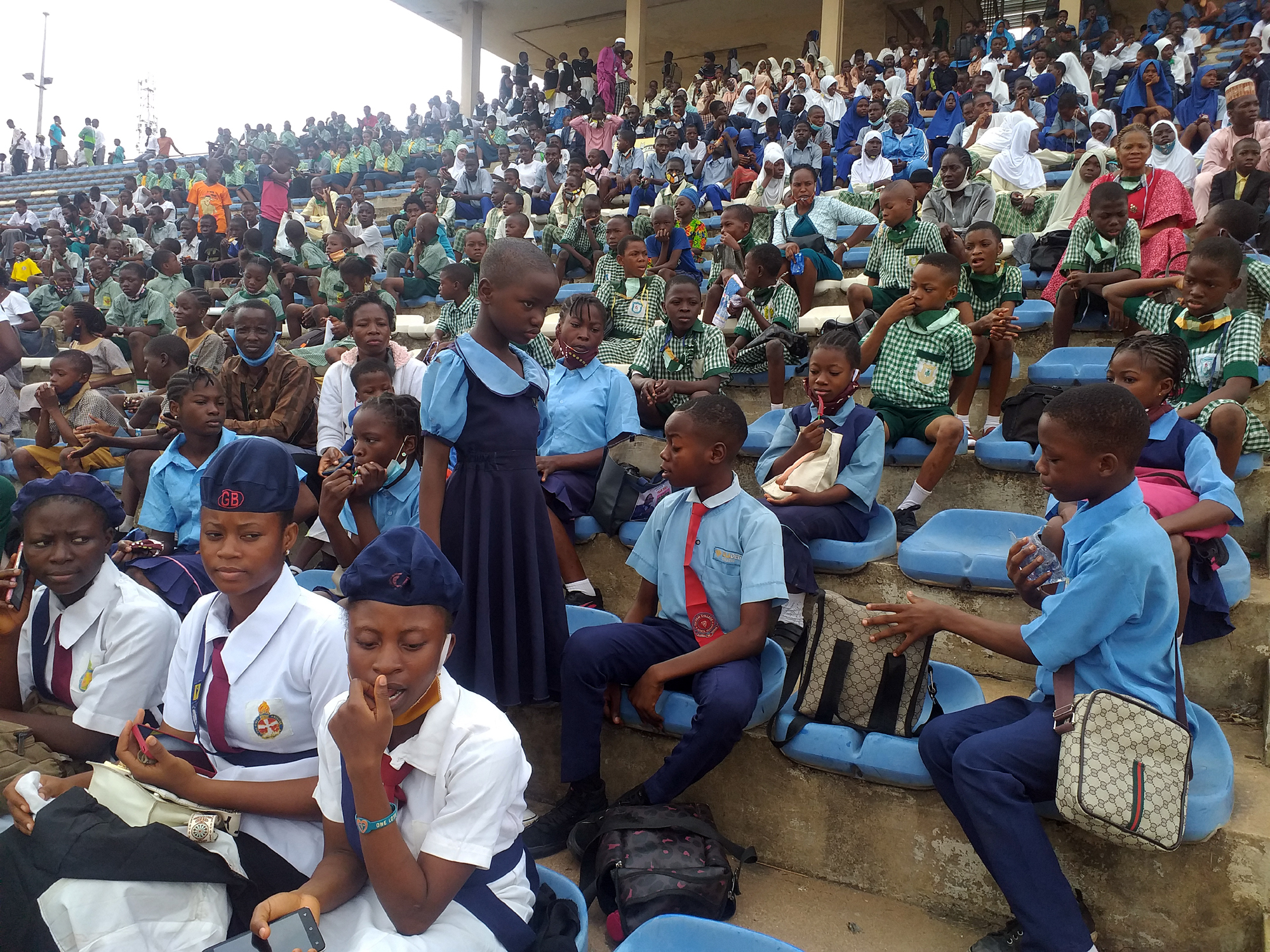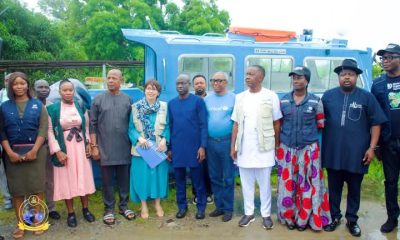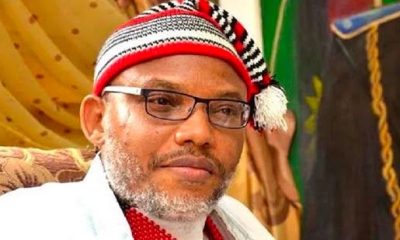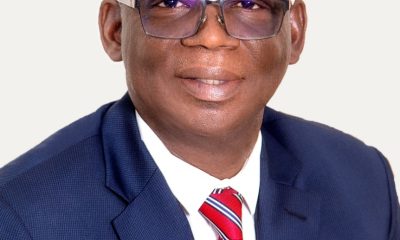Metro
70% of Students in Nigeria Faces Learning Crisis – UNICEF

By Laide Akinboade, Abuja
United Nations Children’s Funds, UNICEF, has raised alarm over 70% of 10-year-old school children in Nigeria saying, they cannot understand a simple sentence or perform basic numeracy task.
Chief of UNICEF Field Office, Kano Rahama Farah, stated this at a two day media dialogue on Sustainable Development Goals, SDGs, organized by UNICEF, on collaboration with Federal Ministry of Information.
He lamented that Nigeria is facing a serious learning crisis in which learning is not taking place, even for children that are in school.
According to him, “Talking about children’s rights, Education is one of such rights. Education is a fundamental human right, and that right is well-articulated in the UN Convention on the Rights of the Child, the (CRC) which guides the work of UNICEF, and of course, in other legal instruments, including the Nigerian Constitution.
“In executing its mandate of promoting, protecting, advocating, and collaborating with partners for the realisation of the rights of children, UNICEF has been collaborating with the Government of Nigeria to improve outcomes in the education sector.
“Progress is being made; yet much more needs to be done, hence this dialogue!”.
He continued, “For instance, as is the case with some countries globally, and in sub-Saharan Africa, Nigeria faces a learning crisis in which learning is not taking place, even for children that are in school.
“According to the World Bank, Nigeria is experiencing a learning poverty in which 70 per cent of 10-year-olds cannot understand a simple sentence or perform basic numeracy task.
“To address the challenge, achieving basic learning outcomes at the foundational level of education is key. It is clear that to improve learning outcomes in Nigeria, achieving basic foundational skills at that level of learning cannot be overemphasized.
“UNICEF is already supporting the Government of Nigeria to improve Foundational Literacy and Numeracy through tailor-made, teaching learning practices, such as Teaching at the Right Level (TaRL) and Reading and Numeracy Activities (RANA).
“But a lot still needs to be done to scale-up Foundational Literacy and Numeracy in Nigeria, and the support of every ally and stakeholder is needed – especially that of a powerful institution and ally like the media.
“The media must deploy its powerful mass-mediated channels of communication to raise awareness of the learning crisis in Nigeria; advocate increased funding to the education sector, especially the allocation of adequate resources to pre-primary and primary level of education in Nigeria; and investing in improving teacher quality”.
“He therefore urged the media to mobilize all stakeholders – parents, teachers, communities, government, CSOs, donors, everyone – to join in the worthy cause of addressing the challenge of learning poverty in Nigeria”.
Chidi Ezinwa, from Enugu State University of Science and Technology, in his presentation, said children are not objects, they have rights that must be put into consideration.
He lamented that one out of three children live on extreme poverty . 10% of the world population still live in extreme poverty , struggling to fullfil basic needs like health, education, and access to water and sanitation.
According to him, “Existence of poverty means denial of rights . Poverty is a major factor in denial of some of children’s rights.
“144 million children under 5 years of age were affected by stunting in 2019, with three quarters living in southern Asia and sub-sahara Africa. In 2019 6.9% (47m), children under 5 years of age were affected by wasting or acute under nutrition”.
“Between the ages of 15- 49, 258 million children and youths were still out of school in 2018 while nearly one fifth of global population on that age group. 19.4 million children dis not receive essential vaccine by 1 year old”.
Metro
First Lady Urges Nigerians to Embrace Cultural Diversity, Promote Unity

The First Lady, Sen. Oluremi Tinubu, has urged Nigerians to embrace their cultural diversity and promote unity and respect within the diverse nation.
The first lady made the call in her message on Wednesday in commemoration of the 2025 World Day for Cultural Diversity for Dialogue and Development.
“The World Day for Cultural Diversity for Dialogue and Development, highlights the profound strength that lies our differences and the shared humanity that connects us all.
”There is indeed strength and unity in diversity.
“Nigeria for example is blessed with over 250 ethnic groups, each speaking a different language, but it is through our dialogue, our interactions, and our mutual respect that we find true identity and unity.
“On this day, I encourage every Nigerian to celebrate our cultural richness, to listen with empathy, and to lead with understanding.
“Let us embrace this journey together and shape a brighter future for Nigeria and the world,” Mrs Tinubu said.
The World Day for Cultural Diversity for Dialogue and Development is celebrated every year on May 21, to raise awareness on the role of Culture in sustainable socio-economic growth and development. (NAN)
Metro
FCTA Approves Contract For Construction Of Access Roads, others

The Federal Capital Territory (FCT) Executive Committee has approved the award of contract for the construction of access roads in Durumi and Mabushi Districts and other infrastructural projects.
Mr Richard Dauda, acting Executive Secretary, Federal Capital Development Authority (FCDA), disclosed this in Abuja on Tuesday, while briefing journalists after the 14th committee’s meeting, chaired by FCT Minister Nyesom Wike.
Dauda said that a contract was approved for the construction of access roads in Durumi District.
He explained that the contract would involve the construction of several access roads, drainages and culverts totalling about 1.7-kilometres in Durumi, around the Apostolic Church.
He added that the committee also approved the provision of access roads and infrastructure to parts of Mabushi District, particularly the Kez Udezue street, and other roads in the area.
He said that the scope of that project involves the provision of access roads, underground drainage services, street lighting, and other facilities like water and sewage collectors.
Also approved, according to the acting FCDA boss, is an emergency contract for erosion control affecting water pipelines.
He explained that the erosion affected a major water pipeline from Lower Usuma Dam through Kubwa to Airport Road and down to Gwagwalada.
“Erosion had taken place on the major pipeline feeding the various tanks up to Gwagwalada and it was a threat to the major water supply to all these areas.
“So, a Chinese company, CGC Nigeria Ltd. was invited to carry out the emergency work on the sites and the approval at the committee’s meeting was to finalise the emergency repair,” he said.
Dauda also said that the committee equally approved the award of contract for the complete renovation, furnishing and technical installations at the Department of State Security Headquarters.
“Another memo was for the construction of one block of a Magistrate Court in Jabi,” he said.
Earlier, the Chief of Staff to the FCT Minister, Mr Chidi Amadi, explained that 13 memos were submitted for consideration, out of which nine were examined and approved.
Amadi added that the nine memos were approved to deepen the infrastructural development and upgrade of the capital city and its environment. (NAN)
Metro
Infrastructure: We Have Renovated, Furnished 60 Schools in FCT – Wike

The Minister of the Federal Capital Territory (FCT), Mr Nyesom Wike, says the FCT Administration has renovated and furnished more than 60 public schools across the territory.
Wike stated this after inspecting some ongoing projects in Gwagwalada and Kwali Area Councils of the territory on Friday.
He explained that beyond road projects, the FCT Administration had invested hugely in improving critical infrastructure in the health and education sectors among others.
According to him, every sector will receive the needed attention, and no one will be left behind.
“We have done a lot of work in schools. The schools we have renovated and furnished are more than 60 so far.
“I can tell you that no sector would be left abandoned, every sector will be focused on.”
The minister, however, pointed out that “good road network is what brings development.
“When there are no roads, which school will you go to?
“When there are no roads, which hospital will you go to?
“So first of all, the key thing that drives development is a good road network all over the world.
“If you’re talking about agriculture, how will you go and harvest your produce when there is no road?”
Wike said that the farming communities along the A2 to Pai road would be happy that they now have a road network to take their farm produce to the city and markets to sell.
He added that good road networks also impacted positively in reducing insecurity.
He explained that when people commit offences and there was no road to chase them, it would become a problem.
“But when you see this kind of road with streetlights, you will have to think twice before you commit any offence,” the minister said. (NAN)
































